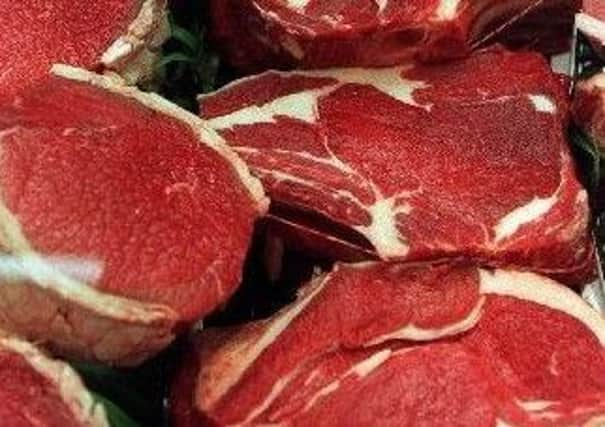Red meat under more pressure


Specifically, it cites red meat as being unhealthy and recommends that consumption of beef should be reduced drastically both as a means of improving human health and countering the challenge of global warming.
Eating one steak a month or one hamburger per week are cited as acceptable levels of redmeat consumption for the future.
Advertisement
Advertisement
The Commission convenes leading global researchers from diverse scientific disciplines. Their mission is to advance the development of scientific targets for healthy diets from environmentally sustainable food production.
According to the report, international food systems have the potential to nurture human health and support environmental sustainability. But changes in food production and consumption patterns will be required in order to make this a reality .
The publication addresses the need to feed a growing global population a healthy diet while also defining sustainable food systems that will minimise damage to our planet.
Specifically, the report recommends that red meat consumption should be reduced
Advertisement
Advertisement
The Commission quantitively describes a universal healthy reference diet, based on an increase in the consumption of healthy foods (such as vegetables, fruits, whole grains, legumes, and nuts), and a decrease in consumption of unhealthy foods (such as red meat, sugar, and refined grains) that would provide major health benefits, and also increase the likelihood of attainment of the Sustainable Development Goals.
The Ulster Farmers’ Union (UFU) has questioned the dietary recommendations contained within the EAT-Lancet report, claiming that it ignores scientifically proven and medically accepted advice that lean red meat is an important part of a healthy, balanced diet.
The UFU is advising consumers to do their own research on the nutritional benefits of eating lean red meat as part of a balanced diet before making radical changes.
UFU deputy president David Brown said:“There are many nutritional benefits of lean red meat. It is a major source of protein and is rich in iron, zinc, and B-vitamins. Dramatically reducing lean red meat in your diet could mean you are missing out on vital nutrients.”
Advertisement
Advertisement
The EAT-Lancet Commission says that food must be produced sustainably across the globe in order to feed the growing population, something the UFU agrees with.
“However, farming methods and eating patterns vary greatly across the globe. A ‘one size fits all’ solution is unrealistic and targeting one food group is an over simplified solution,” Mr Brown added.
The UFU points out that Northern Ireland is ideally suited to livestock grazing systems and making the best use of available natural resources. In many areas, there are few alternative uses for the land.
Mr Brown continued: “Farmers recognise climate change is one of the biggest challenges facing the industry. In Northern Ireland, our grassland and hill land are massive natural carbon sinks. Capturing CO2 and storing it. Work is under way to further reduce greenhouse gas emissions and we recognise there is still more to be done,” he said.
Advertisement
Advertisement
According to the UFU, one of the best ways consumers can fight climate change is to buy local food.
The Union’s deputy president concluded: “When you buy food that is grown: not flown not only are you helping the planet, but you are keeping local farmers in business. Farmers are rightly proud of the high-quality food they produce. And when it comes to red meat, consumers can be confident when they buy Northern Ireland Farm Quality Assured beef or lamb that they are getting a product that meets some of the world’s toughest animal welfare and environmental standards.”